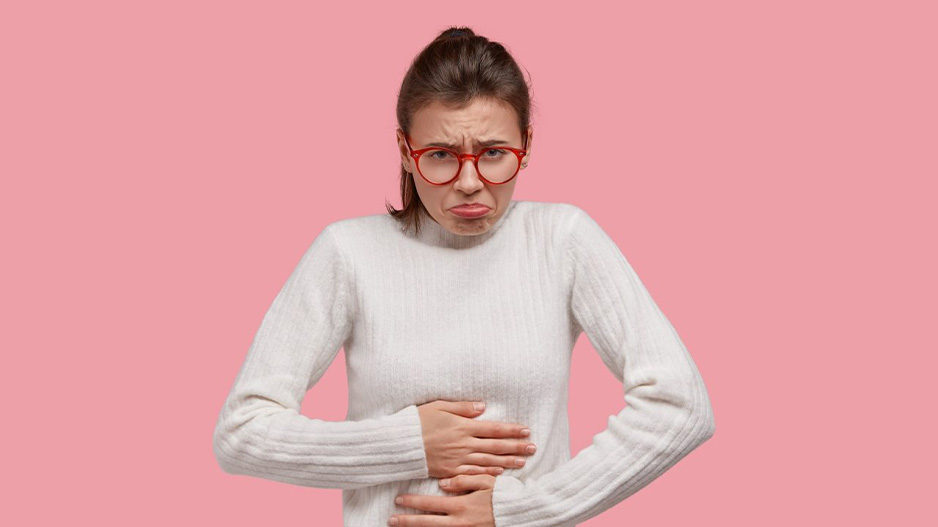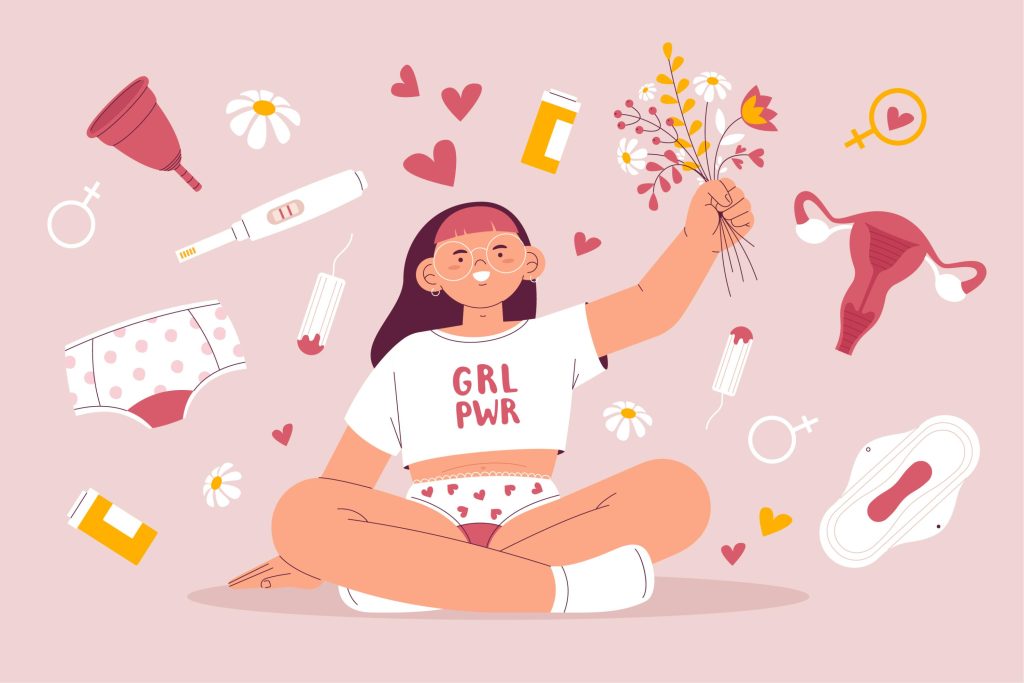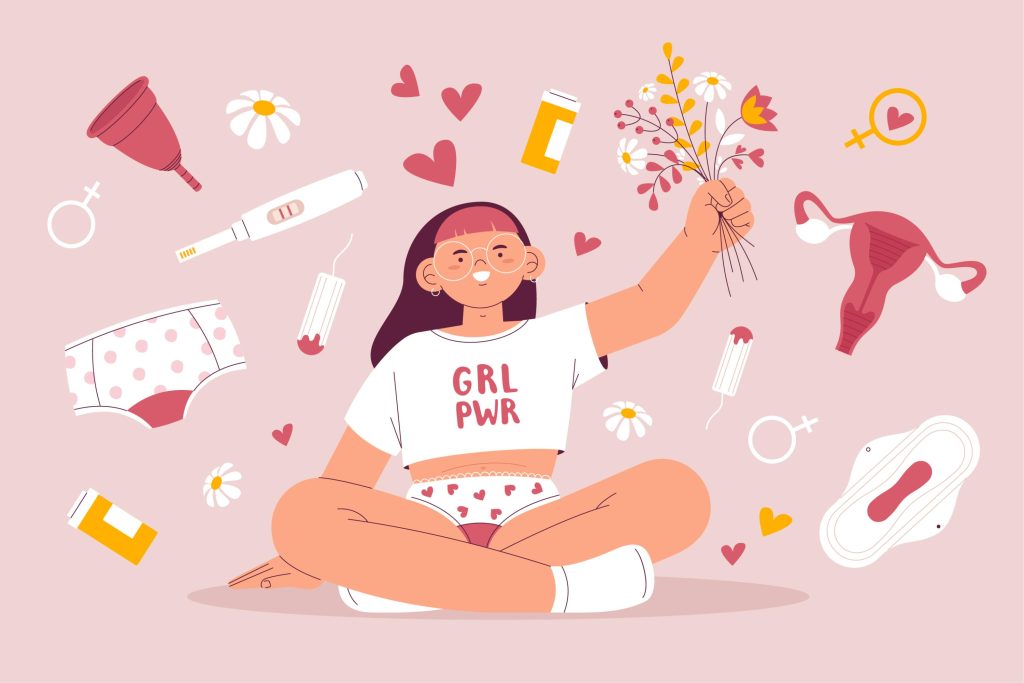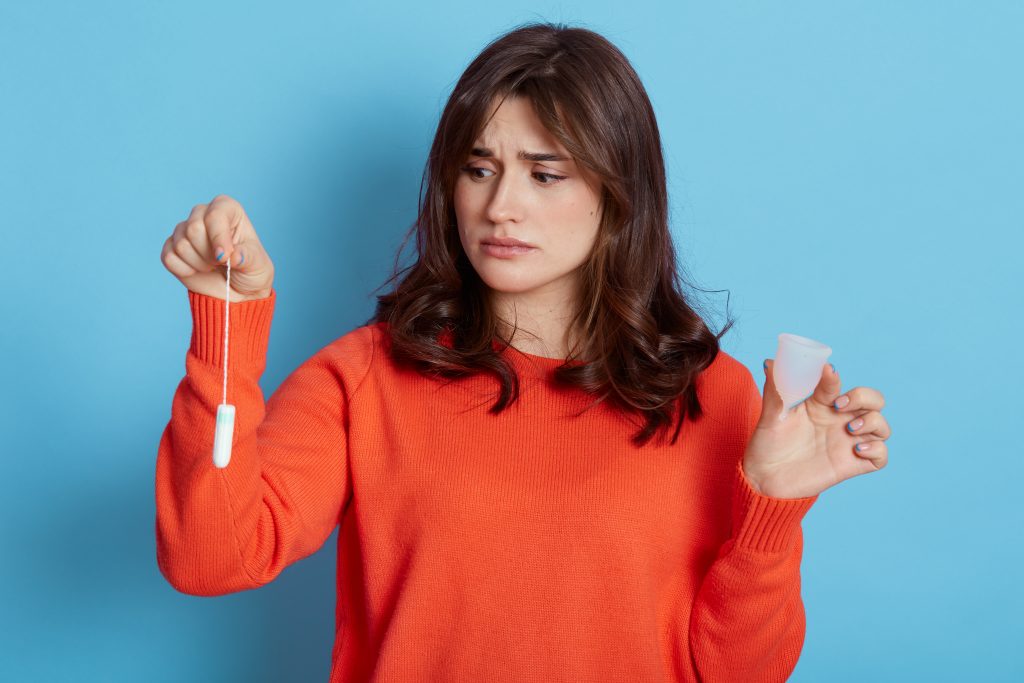Period Care: Never Miss These 6 Signs About Periods
Every woman undergoes a different period cycle, from moderate to severe, and distinctive symptoms. An average menstrual cycle lasts for 3 to 7 days, and in case you experience any changes in your monthly cycle, you must be aware. Pay attention to those unbearable symptoms and keep thinking, is there a thing as a normal period? Let’s find out the symptoms you shouldn’t ignore; what are the period problems or symptoms worth discussing with a medical professional.

Irregular periods
As we said earlier, normal is a flexible term for describing periods, and most women have a cycle that lasts 21 to 35 days. If you are missing out on your periods, it is best to find out the cause behind it before it grows into major complications. Find out what are the possible reasons that might affect your period cycle.
- Stress: Severe long-term stress can actually be a problem of irregular periods.
- Extreme Fluctuations in Physical Activity: Losing or gaining weight might cause period problems because it affects your hormones.
- Birth Control: Using hormonal birth control pills can affect your period cycle, and it can also affect how often you get your period.
- PCOS (Polycystic ovary syndrome): This condition can also be a major factor causing a disturbance in your menstrual cycle.
- Perimenopause: If you are in your late 40s or 50s, you start getting closer to your menopause period. You are officially in that period if they stopped for 12 consecutive months. However, fluctuation can happen.
Heavy Bleeding
Your annoying Aunt Flow might visit you often. A heavy menstrual flow is common, and period blood volumes vary from woman to woman. However, abnormal menstrual flow can also be an indication of menorrhagia. Causes of heavy menstrual flow may include:
- IUD (Intrauterine device): This birth control method can cause heavy flow as a side effect.
- Endometriosis: Tissue that normally lines your uterus grows in other sections of your pelvis, causing this illness. Each month, the tissue in your uterus expands and is eventually lost during your period.
- Hormonal imbalance: PCOS and hypothyroidism (hypothyroidism) are two conditions that can impair hormone production. Hormonal changes might thicken your uterine lining more than usual, resulting in heavier periods.
- Bleeding disorders: Like Von Willebrand disease, an inherited clotting disorder. The heaviness of your flow can also be affected by these illnesses.
- Pregnancy complications: Heavy bleeding is common in miscarriages and ectopic pregnancies. It’s crucial to remember that these things can happen very early in pregnancy, so you might not even be aware you’re pregnant.
Intense Cramps
Cramps are a common symptom of menstruation. Usually, they’re caused by uterine contractions that press the lining of your uterus outward. Cramps usually begin a day or two before your period starts and continue for two to four days. Crampings can be mild and unbearable for some women. Dysmenorrhea is a term for more intense cramps. PID (pelvic inflammatory disease), STDs (sexually transmitted illnesses), stress, adenomyosis, fibroids, and other conditions can also produce unpleasant cramps.
Breast Pain
During your periods, your breasts might feel a little tender. Hormone fluctuations are most likely the cause of the discomfort. There can sometimes be pain in your armpit, where some breast tissue is known as the Tail of Spence.
Abnormally Long or Short periods
Periods can range from two to seven days in length. Short durations of time may not be cause for concern, especially if they are often for you. Hormonal birth control can also reduce the length of your cycle. Menopause can also cause disruptions in your regular cycles. However, if your periods suddenly become substantially shorter, consult your physician. Your periods may be longer than normal due to the same variables that produce heavy bleeding. Some of the examples are hormone imbalances, fibroids, and polyps.
Abdominal pain
What happens in your uterus has an impact on its surroundings. During that month, most women have diarrhea, abdominal pain, or both. It’s probably nothing to be concerned about if this is part of your period’s usual operating procedure. If not, it could be a symptom of a more serious medical disease, such as PID. Excessive fluid loss from diarrhea can lead to dehydration, and if it gets out of hand, you should visit a doctor.
No matter which period symptoms you face or affects you, don’t ignore them. Talk about your menstrual cycle problem with your physician so that it won’t disturb your routine even on those days.




